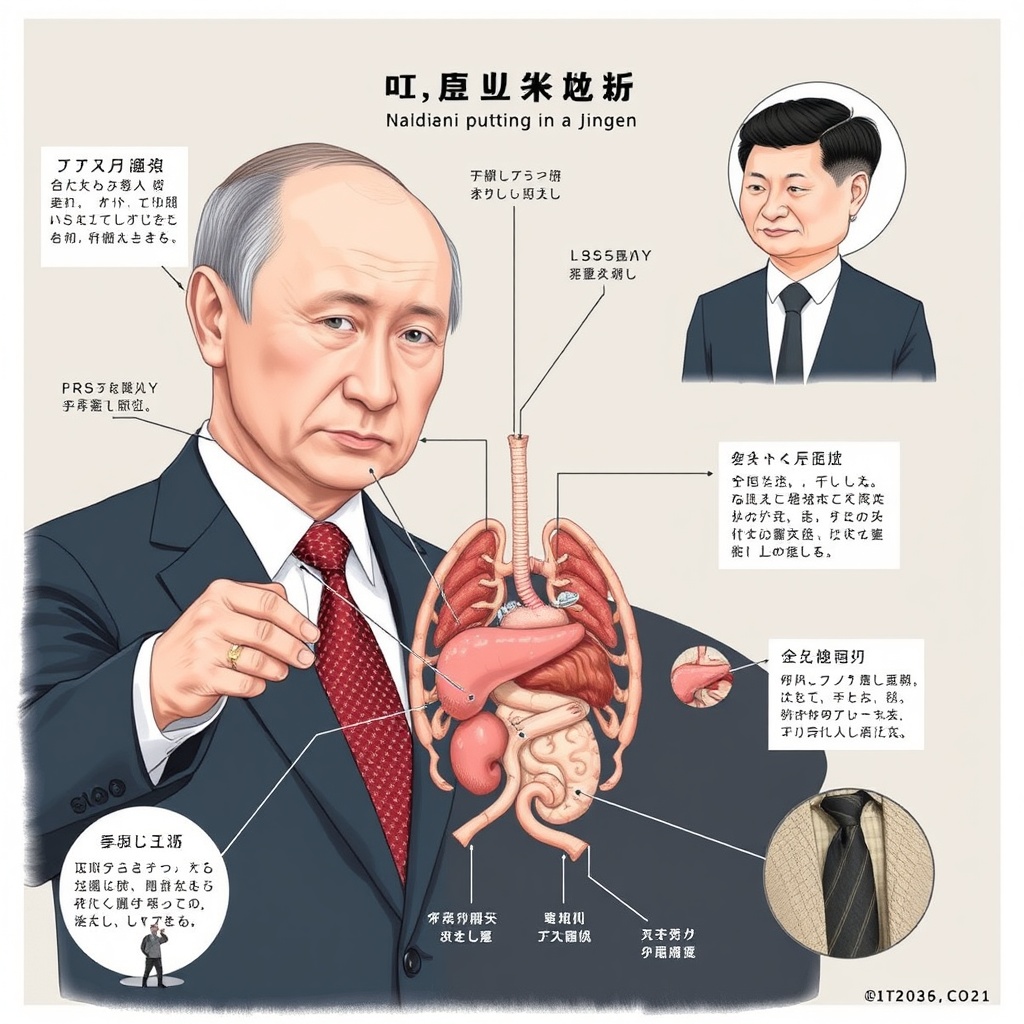Introduction
The pursuit of immortality has been a longstanding theme in human history, with various cultures and civilizations seeking to extend human lifespan and defy the inevitability of death. Recently, a conversation between two of the world's most influential leaders, Vladimir Putin and Xi Jinping, has brought this topic back into the spotlight. According to reports, the Russian president suggested to his Chinese counterpart that organ transplants could potentially offer a path to immortality. This article will delve into the concept of immortality, the science behind organ transplants, and the implications of such a conversation between two world leaders.
The Concept of Immortality
The idea of immortality has fascinated humans for centuries, with many attempting to achieve it through various means, including alchemy, spiritual practices, and scientific discoveries. While immortality remains a topic of debate and speculation, advancements in medical science have led to significant increases in human lifespan. The average global lifespan has increased by over 10 years since 2000, with many countries experiencing even more substantial gains. However, despite these advancements, the human body still faces limitations, and organ failure remains a significant contributor to mortality.
Organ transplants have revolutionized the field of medicine, allowing individuals to receive new organs and extend their lifespan. However, the process of organ transplantation is complex, and the demand for organs far exceeds the available supply. According to the World Health Organization (WHO), there is a significant shortage of organs for transplantation, with many patients dying while waiting for a transplant. The conversation between Putin and Xi Jinping highlights the potential for organ transplants to extend human lifespan, but it also raises important questions about the ethics and feasibility of such a approach.
The Science Behind Organ Transplants
Organ transplants involve the replacement of a diseased or damaged organ with a healthy one from a donor. The process of organ transplantation has evolved significantly over the years, with advancements in immunosuppression, surgical techniques, and organ preservation. Today, organ transplants are a common procedure, with thousands of transplants performed worldwide every year. The most common types of organ transplants include kidney, liver, heart, and lung transplants.
However, organ transplants are not without challenges. The human body has a natural immune response to foreign substances, including transplanted organs. To prevent rejection, patients must take immunosuppressive medications, which can have significant side effects and increase the risk of infections. Additionally, the availability of organs for transplantation is limited, and the process of matching donors with recipients is complex.
The idea of using organ transplants to achieve immortality is still largely speculative and raises important questions about the ethics and feasibility of such an approach. While organ transplants can extend human lifespan, they are not a guarantee of immortality. The human body is subject to various forms of cellular and molecular damage, which can lead to aging and disease. Even with the replacement of organs, the body's natural aging process would still occur, and other forms of cellular damage could still contribute to mortality.
Implications and Future Directions
The conversation between Putin and Xi Jinping highlights the potential for scientific advancements to extend human lifespan. However, it also raises important questions about the ethics and feasibility of such an approach. The pursuit of immortality is a complex and multifaceted issue, involving not only scientific advancements but also philosophical, ethical, and societal considerations.
As medical science continues to evolve, it is likely that we will see significant advancements in the field of organ transplants and regenerative medicine. Researchers are currently exploring new technologies, such as 3D printing and stem cell therapy, to develop artificial organs and tissues. These advancements could potentially increase the availability of organs for transplantation and reduce the risk of rejection.
However, the pursuit of immortality also raises important questions about the human experience and the meaning of life. As we continue to extend human lifespan, we must consider the implications of such advancements on our society, culture, and individual experiences. The conversation between Putin and Xi Jinping serves as a reminder of the importance of considering the ethical and societal implications of scientific advancements, particularly those that have the potential to significantly impact human lifespan and experience.
In conclusion, the concept of immortality is complex and multifaceted, involving not only scientific advancements but also philosophical, ethical, and societal considerations. While organ transplants have the potential to extend human lifespan, they are not a guarantee of immortality. The conversation between Putin and Xi Jinping highlights the importance of considering the ethics and feasibility of such an approach, as well as the need for continued scientific advancements and societal discussions about the implications of extending human lifespan.
Conclusion
The pursuit of immortality is a longstanding theme in human history, with various cultures and civilizations seeking to extend human lifespan and defy the inevitability of death. The conversation between Vladimir Putin and Xi Jinping highlights the potential for scientific advancements to extend human lifespan, but it also raises important questions about the ethics and feasibility of such an approach. As medical science continues to evolve, it is likely that we will see significant advancements in the field of organ transplants and regenerative medicine. However, the pursuit of immortality must be considered in the context of the human experience, societal implications, and ethical considerations. Ultimately, the quest for immortality serves as a reminder of the importance of continued scientific advancements, philosophical discussions, and societal considerations about the meaning and value of human life.


Leave a comment